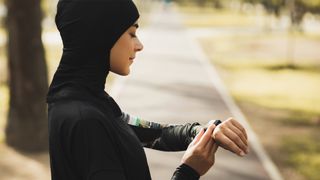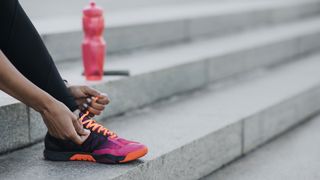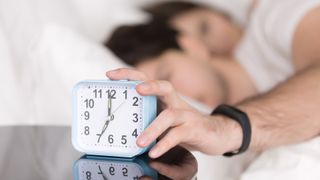Many of us rely on fitness trackers to measure things like our heart rate, step count and sleep quality – but are they really accurate? The answer depends on which health metric you’re looking at. Most of them can give you a good idea of your step count if you’re going on a hike, but even the best fitness trackers struggle to accurately record when you’re sleeping and when you’re awake.
We combed through the latest studies – and spoke to experts – to find out which metrics you can really trust.
Calories
A 2018 study carried out by researchers at the Technical University of Munich found that fitness trackers were woefully inaccurate at calculating energy expenditure (calories burned). The damning report concludes that trackers aren’t accurate enough to be used in either sporting pursuits or healthcare.
Personal trainer at SIX3NINE Emily Taylor explains why some trackers may not be accurate for calorie burn: “There are loads of different factors that come into play when estimating calorie burn, and not all of them can be taken into account by the formulas that these trackers use to predict energy expenditure.”
Some fitness trackers only count the number of calories you burn through exercise, while others look at your calorie burn from the whole day. It might be useful to look at the calories burned as a kind of guide, showing days where you’ve had more active periods – but don’t rely on it too heavily if you’re trying to calculate calorie intake versus energy expenditure.
Step tracking
Most wearables use motion sensors to record how many steps we take, but studies have found that your pace can affect accuracy.
A 2020 paper published in the International Journal of Environmental Research and Public Health found that lengthy, brisk strolls were calculated more accurately than shorter walks. So your watch might be able to count your steps on a hike but it won’t register your movements round the house. A different study from 2017, published in peer-reviewed journal JMIR mHealth and uHealth, found that the accuracy on fitness trackers was negatively affected by walking aids, like a walking stick or shopping cart.
No study has been able to conclude that trackers are 100% accurate at step counting, so you might want to take this metric with a pinch of salt, too, but it’s usually more accurate than recorded calories and heart rate.
Heart rate
“Some trackers use an ECG [electrocardiogram] heart rate belt, which measures the heart rate using electrical waves, while others use an optical heart rate monitor which measures it by light,” explains Mari Thomas, founder of Maaree sports bras and former fitness tracker tester for TomTom. “Optical heart rate is the least accurate of the two as external rhythms like your running cadence can interfere if they align too closely.”
A 2017 study conducted by The Heart and Vascular Institute tested fitness trackers and chest-worn monitors against a standard ECG. The researchers used a sample of 50 people, and measured their heart rate with the fitness trackers as they walked and ran on the treadmill. They found that the chest-worn monitors were the most accurate and matched up with the ECG readings.
Thomas explains why fitness trackers could be less accurate: “The surface of the wrist needs to be in close and constant contact with the receiver, which can be difficult if one has a smaller or harder service area here.
“Perfusion can also play a big role – and low perfusion will have a detrimental effect on OHR performance. Factors that affect perfusion can include skin tone and outside temperature.”
Sleep
The most accurate way to get a reading of how we’re sleeping is by having a polysomnography test, which measures things like brain waves and heart rate to get an overall picture of your sleep health.
Fitness trackers typically use sensors to measure our movement while we sleep, but some research says that their sleep tracking doesn’t measure up to the traditional methods – especially when it comes to measuring our sleep cycles, including deep, light and REM (rapid eye movement).
A 2019 study by researchers from the Yale schools of nursing and medicine showed that when fitness trackers record sleep and wake up times, they are only 78% accurate. And the same study found that the trackers were terrible when it came to actually recording the moment wearers fell asleep, with only 38% getting it right.
However, despite how inaccurate fitness trackers can be, at times, Emily says that they are great for one thing: “Trackers can provide the accountability and motivation needed to implement positive behaviour change. Having a quantifiable goal to work towards (like a step count and sleep target) can be very valuable.”




